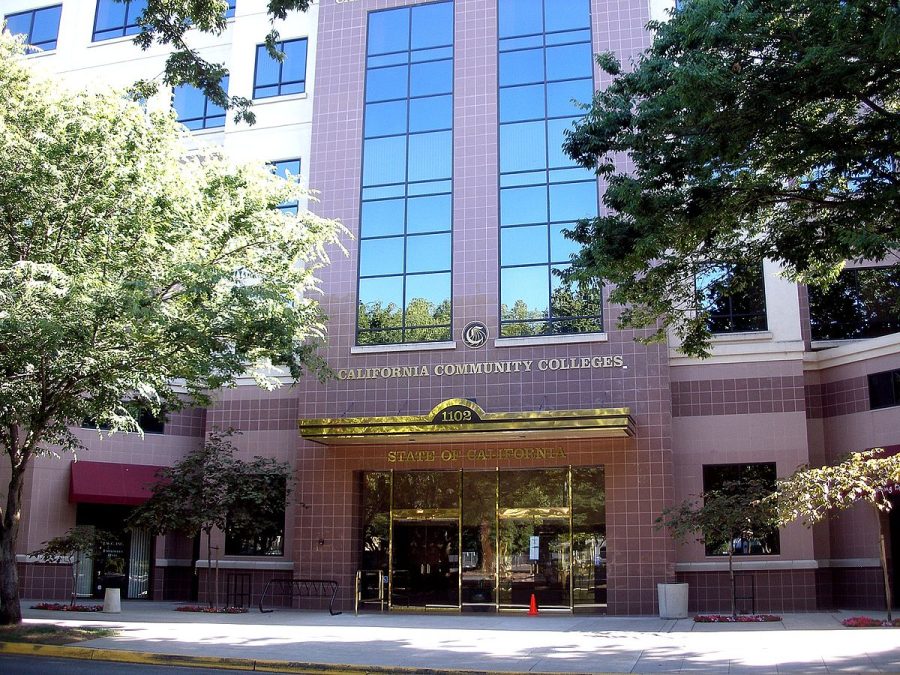California Community Colleges Unshaken By Federal Court’s Decision to End DACA
During the first student media teleconference hosted this semester by California Community Colleges, members of the CCC chancellor’s office, Board of Governors and student body discussed a recent federal court ruling that appeared to end future DACA applications – an unsettling prospect for many students across the state.
CCC Interim Chancellor Daisy Gonzales sought to relieve students’ anxiety about the court’s decision, which is not expected to disrupt current recipients of Deferred Action for Childhood Arrivals.
“Our mission has not changed,” said Gonzales, speaking on the Oct. 6 statewide call. “Every single student is welcome, and we will serve every single student that comes to our doors.”
The Board of Governors and the CCC school board reiterated their mission to prioritize undocumented students, making clear that the administration will continue to advocate for a clear path to citizenship for its students.
In the meantime, Gonzales urged current DACA program recipients to seek an extension of their application to avoid disruption of their status.
Students can do this by visiting the Immigration Resource Center, a website managed in partnership with various social services.
The student media teleconference, held over Zoom, occurred ahead of the 5th annual Undocumented Student Action Week, which ran Oct. 17-24 and was celebrated on 116 college campuses across California under this year’s theme, “Juntas podemos,” or “Together we can.”
On the call, Gonzales also shared news about legislative bills signed by Gov. Gavin Newsom in recent weeks.
For example, SB 1141, proposed by State Sen. Monique Lemoan, will allow all eligible undocumented students to pursue their education goals faster and more affordably. Whereas the previously enacted AB 540 required students to complete three consecutive years of education to graduate from community college, SB 1141 will allow students to achieve their graduation goals in two years.
Additionally, the governor signed AB 1766, allowing undocumented immigrants in California to receive a drivers license, ID cards and Medicare access for people ages 24-69.
Gonzales also announced updates to Free Applications for Financial Student Aid, or FAFSA, which has made more student aid accessible than in previous years. FAFSA applications for the 2023-24 school year are now available and students are encouraged to apply as quickly as possible.
Applicants may visit ICANGOTOCOLLEGE.com to receive more information about grants, financial aid assistance and the California Dream Act.
Participants in the meeting also reviewed critical changes recently made to streamline the process for students transferring to four-year state schools through the Associate Degree for Transfer (ADT) program.
Students can now transfer to most public, private and non-profit colleges nationwide, in addition to CSU and UC schools. The deadline for students to apply for Fall 2023 transfer to most universities is Nov. 30.
Gonzales encouraged students to begin preparing their applications for their selected schools, stating, “This is the application season and students should really begin thinking about transferring to a four-year school through our ADT program.”
The California Governor’s office also approved AB 927 on Sept. 27, a bill that further extends baccalaureate degree opportunities for students at California Community Colleges.
CCC were able to offer 15 baccalaureate programs in the past, but the new bill allows schools to double their offerings to 30 baccalaureate programs. This includes such degrees as a Respiratory Care BA degree program at El Camino College, a BA in Automotive Tech Management at DeAnza College, and an approved Research Lab of Technology degree at Bakersfield College.
“This is what we mean by guided pathways,” Gonzales said, touting the bill’s potentially historic impact on the state’s community colleges. “Students will no longer have to navigate transferring, due to AB 927.”
The next statewide student media teleconference will take place in November and address easier accessibility for disabled students, among other issues.









































































